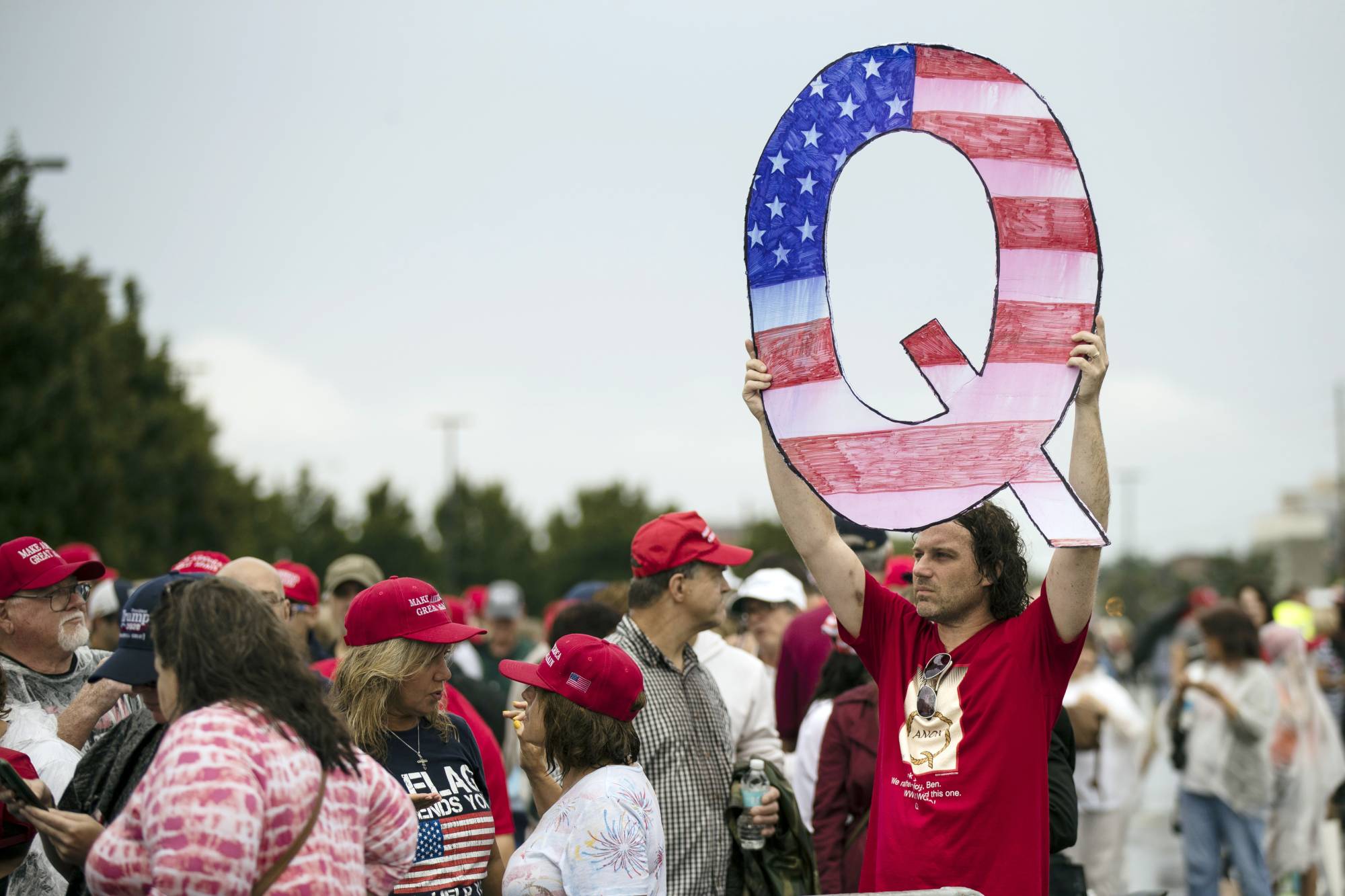Last year, QAnon was on the ropes.
The pro-Trump conspiracy theory had been left homeless by the disappearance of 8chan, the message board where "Q,” its pseudonymous central figure, posted cryptic clues about a cabal of child-eating satanic pedophiles. The message board had been cut off by its security provider after the El Paso, Texas, mass shooting, and while 8chan’s owner, Jim Watkins, was struggling to bring a replacement site online, some QAnon believers appeared to be losing interest.
Then, the pandemic hit — and with it, a new wave of misinformation that QAnon could incorporate into its overarching narrative, from false claims about mask-wearing to conspiracy theories about Bill Gates and a COVID-19 vaccine. The Black Lives Matter protests that erupted after the killing of George Floyd in May also provided new fodder for QAnon’s "bakers” — the amateur sleuths who gather in private Facebook groups and chat rooms to decode Q’s latest posts and discuss their theories about the global cabal.

















With your current subscription plan you can comment on stories. However, before writing your first comment, please create a display name in the Profile section of your subscriber account page.